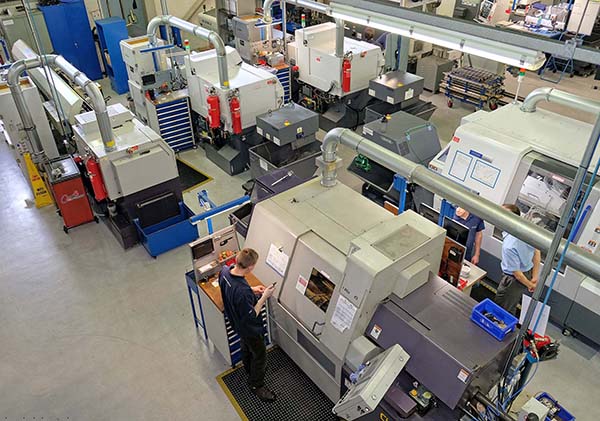
Good-quality machine tools operate reliably and hold tolerance for two decades or more. The problem is that technology moves on so quickly that the productivity of older machines cannot match that of their newer counterparts. This was the situation in which Redruth-based subcontractor DP Engineering found itself until it purchased three new Cincom lathes from Citizen Machinery UK: an L20-XLFV installed three years ago, an identical machine that arrived in autumn 2021 and an M32-VIIILFV bought at the end of last year. The latter two machines were direct replacements for equivalent 20 mm and 32 mm capacity sliders of similar type and make acquired around the turn of the millennium, several machine generations ago.
Philip Anthony, DP Engineering’s sales and marketing director, says: “The faster rapid traverses and higher power and speed of the main and sub spindles, as well as of the driven tools, have increased our capacity considerably. One stainless steel aerospace part we previously turn-milled in one hit on an L20 that is 20-plus years old now takes half the time to produce on its modern replacement.
“It is a similar story on the 32 mm machine, which is more user-friendly than the former-generation lathe and has better access and visibility into the machining area,” he continues. “Moreover, the addition of a rotary B axis on the gang tool post enables us to machine more complex parts than was previously possible on our sliders.”
A notable technological advance from Citizen since DP Engineering purchased the earlier Cincoms was the introduction five years ago of its proprietary LFV (low-frequency vibration) chip-breaking software running in the Mitsubishi control. It has resulted in a significant increase in productivity when machining malleable materials such as titanium and stainless steel.
For further information
www.citizenmachinery.co.uk














